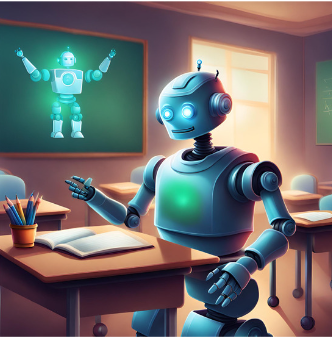The Synergy of AI and Schooling
Introduction:
In an era defined by technological advancements, the integration of artificial intelligence (AI) into education is reshaping the landscape of learning. This blog explores the transformative potential of AI in schools, highlighting its benefits and addressing concerns to provide a comprehensive understanding of this evolving relationship.
Personalized Learning:
AI in education enables personalized learning experiences tailored to individual student needs. Adaptive learning platforms analyze student performance, identify strengths and weaknesses, and deliver customized content, fostering a more effective and engaging learning environment.
Intelligent Tutoring Systems:
Imagine having a virtual tutor available 24/7 to assist students in grasping complex concepts. AI-powered tutoring systems can provide instant feedback, additional explanations, and adaptive challenges, promoting a supportive learning journey beyond the constraints of traditional classroom hours.
Data-Driven Decision Making:
School administrators can harness the power of AI to analyze vast amounts of data efficiently. From identifying trends in student performance to predicting potential areas of improvement, data-driven insights empower educators to make informed decisions, ultimately enhancing the overall quality of education.
Automating Administrative Tasks:
AI streamlines administrative tasks, allowing educators to allocate more time to teaching. Automated grading systems, scheduling tools, and attendance trackers not only reduce workload but also contribute to a more efficient and organized educational environment.
AI and Specialized Education:
For students with diverse learning needs, AI can offer targeted interventions and support. Whether through speech recognition for language development or adaptive interfaces for students with different abilities, AI promotes inclusivity in education.
Concerns and Ethical Considerations:
While the integration of AI in schools brings numerous benefits, it also raises important ethical considerations. Privacy concerns, potential biases in algorithms, and the need for transparent AI policies must be addressed to ensure responsible and equitable use of technology in education.
Conclusion:
The fusion of AI and education represents a powerful force for positive change. By embracing the potential of AI, schools can unlock new opportunities to enhance learning experiences, cater to individual needs, and prepare students for a future where technology plays an increasingly pivotal role. As we navigate this transformative journey, it's essential to approach AI integration in education with a thoughtful and ethical mindset, ensuring that the benefits are maximized while minimizing potential risks.
Aleksa Banković


